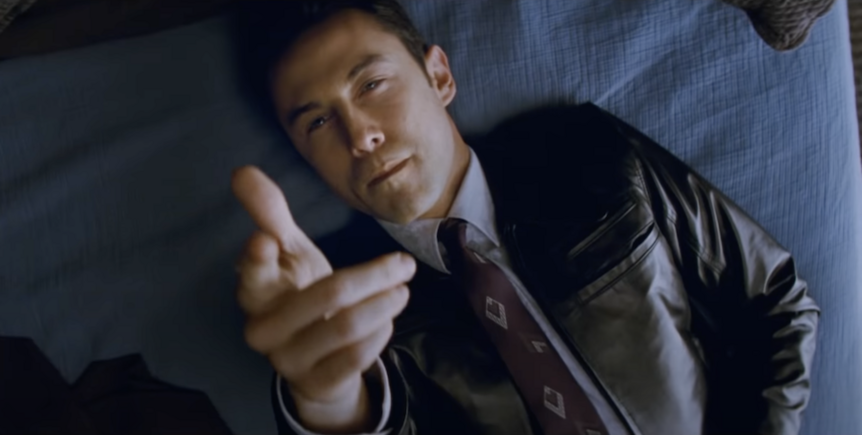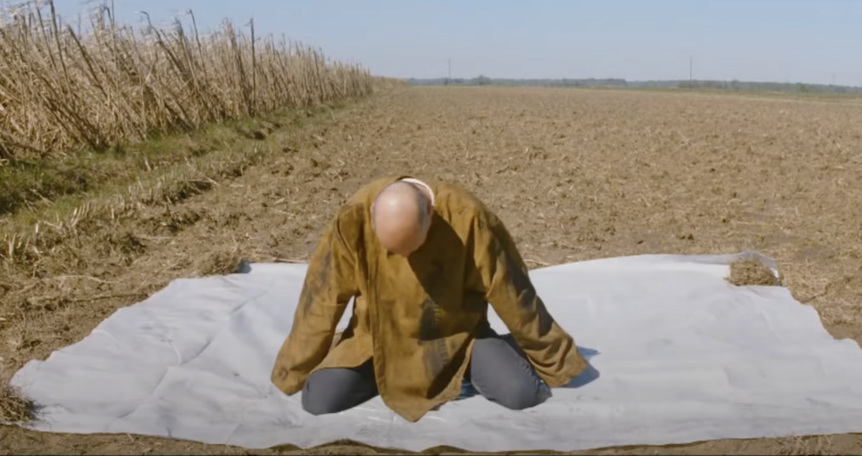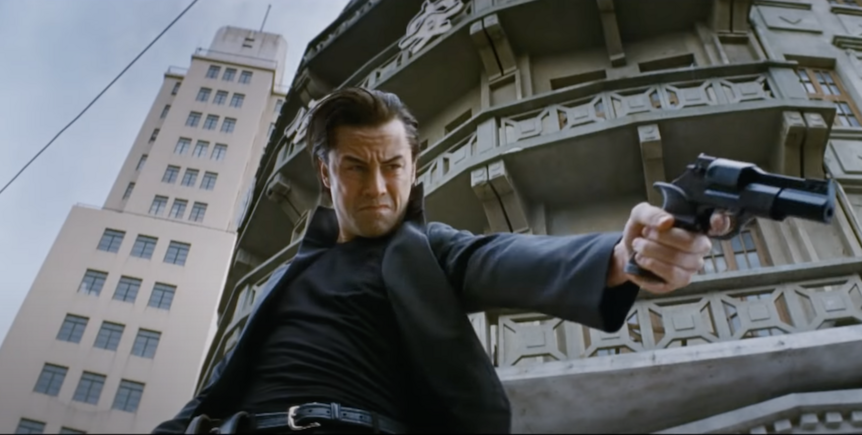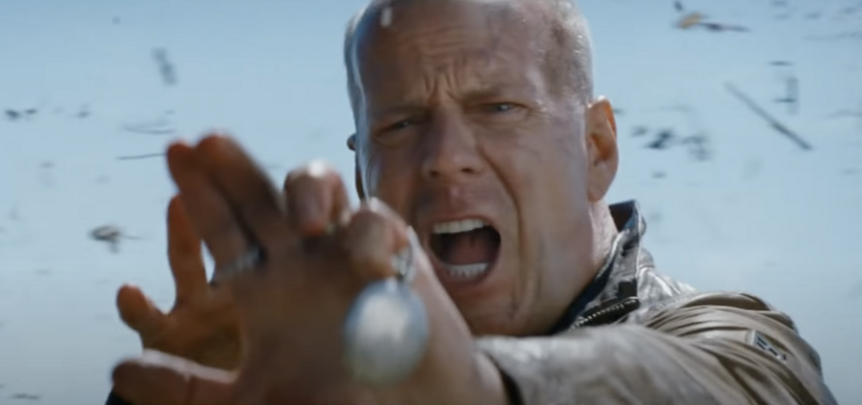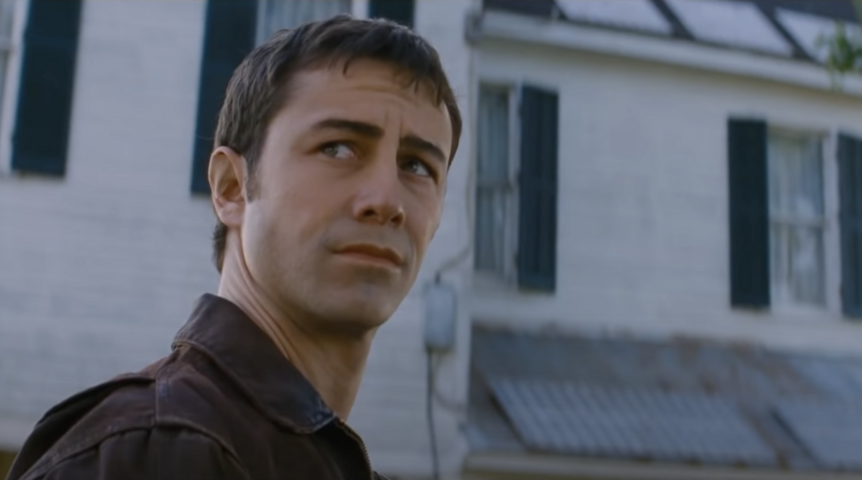Create a free profile to get unlimited access to exclusive videos, sweepstakes, and more!
10 years later and we're still trying to make sense of 'Looper's time travel twists
Rian Johnson's noir time travel film is a compelling watch even though the timey wimey parts are a bit confusing.
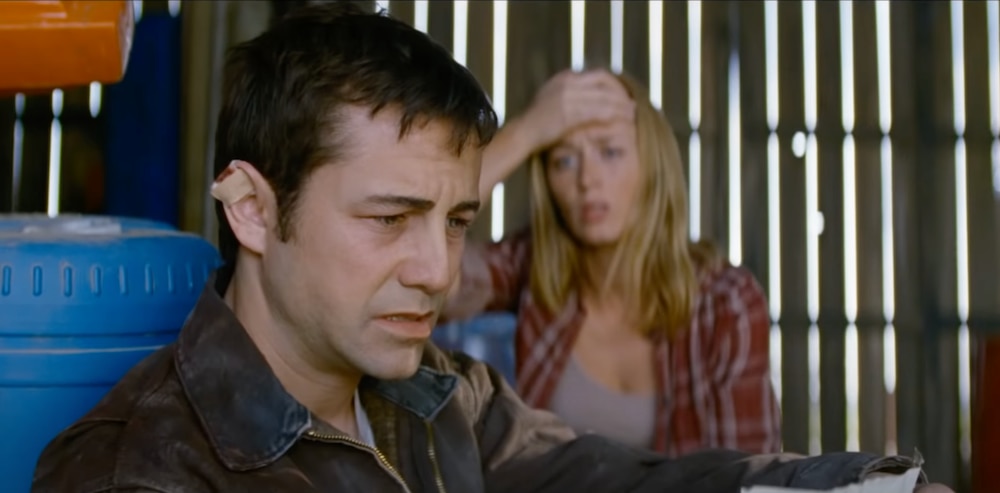
Looper, the 2012 sci-fi film written and directed by Rian Johnson, is one of the best time travel movies out there. Like many time travel movies, however, it can be tough to follow all the “rules” that come into play when Young Joe (Joseph Gordon-Leavitt), a professional killer of those from the future, gets entangled with his older self (Bruce Willis) when he’s sent back in time for Young Joe to kill.
We told you it’s confusing.
On the eve of its 10th anniversary, we've decided to put together an overview of how time travel works in Looper, including how time travel impacts the film’s story. Once you’re up to speed, you can head over to Peacock to rewatch the movie and enjoy the drama and the suspense that comes with Looper’s time travel machinations.
First rule of Looper time travel: Don’t think about it too hard
While we’ll go on to explain how the time travel mechanics work in Looper, the most important thing to remember is that the movie’s “rules” on how time travel works are fast and loose, and don’t hold up under too much scrutiny.
Old Joe tells us this almost halfway through the film when he talks to his younger self in their favorite diner. “I don’t want to talk about time travel s***,” Willis’ character says. “Because if we start talking about it, we’re gonna be here all day talking about it and making diagrams and straws. It doesn’t matter.”
Old Joe goes on to call time travel a messy, fuzzy mechanism, and we should treat it as such. But even if we’re comfortable with some handwaving, there are still some basic principles we need a grasp on for the movie’s ending to make sense.
Second rule of Looper time travel: If you’re a Looper, you better kill your older self
Young Joe lives in 2074 and works as a Looper, a professional killer that murders people that are sent back in time by a criminal syndicate. Joe gets paid good money, but part of the deal is that at some point your older self will be sent back in time for you to murder. Once you kill your future self, you'll get 30 years of living before your older self is collected for execution (by you, in what is now your past).
The syndicate prefers this method because it keeps Loopers in line. If your older self gets sent back and you don't murder them, however, it can wreak havoc on the timeline, which no one — not even thugs from the future — wants to deal with.
Third rule of Looper time travel: What happens to young you in an altered timeline also happens to old you
Old Joe running amok in 2074 causes the original timeline for Young Joe to change. The two remain the same person, and as such, anything that happens to Young Joe — if he carves a message into his arm with a knife, for example — Old Joe will get scars reflecting those wounds. Old Joe also has his memories change as events unfold — that’s why Old Joe knows that Young Joe is waiting for him at the farmhouse where Sara (Emily Blunt) and her son, Cid (Pierce Gagnon) live.
Fourth rule of Looper time travel: Old Joe can change the future with his actions
Old Joe takes on a version of the classic time traveler challenge of killing Hitler when he was a baby. The “Hitler” in this case is a man called The Rainmaker who takes over multiple criminal syndicates in the future and indirectly causes the death of Old Joe’s wife. Old Joe would do anything to prevent that from happening (except telling his younger self never to meet her) and narrows down the list of who the Rainmaker could be to three 10-year-old kids. Old Joe plans to kill all three kids, thus preventing any one of them from becoming the Rainmaker.
Fifth rule of Looper time travel: Young Joe can also change the future with his actions
At the end of Looper, Old Joe is still intent on killing Cid, the boy who will become the Rainmaker and who is sporting a telekinetic ability that could rival Dark Phoenix. Old Joe is so committed to getting his life back that he’s willing to kill Sara to get to Cid. So Joe — who, with his limited range blunderbuss, is too far away to stop him — decides to kill himself, which would ultimately kill Old Joe as well.
After Young Joe shoots and kills himself, Old Joe simply vanishes — he no longer exists because Young Joe is dead. How come the events leading up to that haven’t changed? Remember the first rule of Looper time travel: Don’t think about it too hard and just enjoy the ride!
Looper is now streaming on Peacock.
